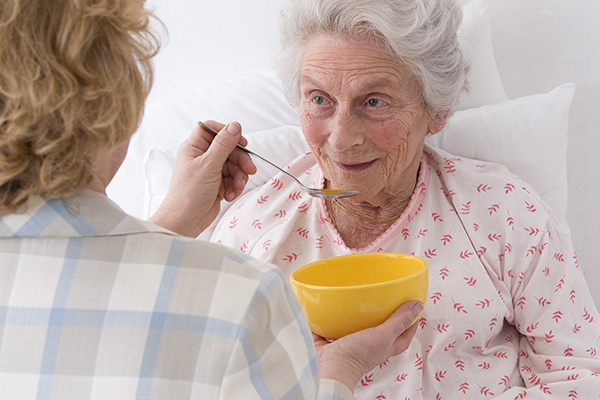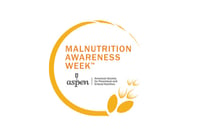While we often hear about children in our society not having access to a proper diet and measures being taken to try to improve their condition, we do not hear as much about the issues facing our older adult population. The fact is, as many as 50-percent of seniors are at risk for shortcomings in their daily food nutrient requirements. Evidence-based research has produced some startling facts that build a case for working to overcome malnutrition in seniors.

The Staggering Costs of Undernourished Older Adults
You are likely aware that malnutrition in seniors will impact their health and well-being, however, it may surprise you to learn that in the United States alone, over 50 billion dollars is attributed to the cost of disease-associated undernourishment in the aging population annually. While chronic health conditions can cause a nutrient deficiency, malnutrition also leads to more health complications, falls and hospital admissions in older adults. It is a dangerous cycle that must be stopped. Some more statistics that may astonish you include:
- One of every two seniors are at risk of malnutrition
- A 300-percent increase in healthcare costs is linked to undernourishment in older adults
- Up to 60-percent of seniors hospitalized suffer from the result of malnutrition
- Malnutrition can increase a hospital stay for a senior by as many as four to six days
Considering the relatively low cost of ensuring adequate nourishment, it is vital that we do what we can to prevent malnutrition in seniors.
Adequate Income not the Only Way to Defeat Malnutrition in Seniors
Malnutrition in seniors is not relegated only to those with low incomes. There are several underlying causes of undernourishment in the aging population. Most can be categorized as physiological, sociological, psychological or pathological.
Physiological Causes
During the aging process, many changes occur in the body that contribute to decreased appetite and a lack of interest in food:
- A decrease in both the senses of taste and smell lower the desire for meals
- Diminishes in taste and smell may lead to increased salt and sugar intake and lower the desire for adequate variety of food choices
- Slower gastric function and decreased acid production delays emptying the system
- Lean body mass decreases, further slowing metabolism and hunger
While these changes are a natural progression, being aware of them and watching for signs is critical in preventing malnutrition in seniors.
Sociological Causes
Aging is difficult for many to accept and can have a serious effect on the sociological factors involved in seniors' eating habits:
- A reduced ability to shop for and prepare food
- Fixed income and socioeconomic status may affect food choices
- Impairment of life skills and activities
- Being alone at mealtimes
Outwardly you may not realize these are all factors in undernourishment, but in this class there are attainable solutions.
Psychological Causes
Concerns in this category run deeper than the social aspect of decreased appetite and should be addressed with a medical professional as soon as they are suspected:
- Depression and a general attitude that life is meaningless
- Loneliness and isolation
- Grief over the loss of a spouse or friends
- Life events that are emotionally stressful
Armed with understanding, combating undernourishment in seniors due to psychological concerns can be improved quickly through emotional support and proper medical attention.
Pathological Causes
The final category of causes is another that requires medical intervention and if symptoms are observed, should be addressed as early as possible:
- Problems with the teeth and jaws
- Alcoholism
- Difficulty with swallowing
- Underlying disease such as cancer, diabetes and thyroid issues
- Dementia
- Medications that interfere with digestion or hunger
Again, these are all causes that should be addressed by a medical professional as early as possible to mitigate the effects of malnutrition in seniors.
How We can Overcome Malnutrition in Seniors
While we we may not be able to eradicate undernourishment in all seniors, armed with this information, you can be sure your loved ones or older adults in your care are not at risk for malnutrition. Some tips include:
- Regular nutritional assessments and follow-up on any prescribed treatments
- Spend time together, particularly at mealtimes whenever possible
- Consider a prepared meal service to combat apathy or poor food choices
- Try to help your senior loved-one stay as active as possible, both socially and physically
One senior at a time, we can all help prevent malnutrition in our older adult population by focusing on those under our care and understanding the underlying causes.
The more a senior has access to healthy foods and all of life’s necessities, the easier it will be to age-at-home. For more information on choosing a home-delivered meals provider, download our free ebook:











